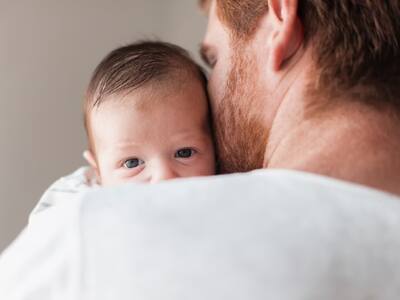
I in 10 men suffers from postpartum depression. This Father’s Day let’s focus on how to help dads deal with postpartum depression.
Postpartum depression is a kind of depression that occurs after the birth of a child. It affects up to 15 per cent of the population. People suffering with postpartum depression endure emotional highs and lows, frequent sobbing, exhaustion, guilt, worry, and may struggle to care for their infant. Medication and counselling can be used to treat postpartum depression.
Postpartum depression is more frequent in mothers, but it may also affect fathers. In fact, one out of every ten men suffers from depression in the year following the birth of their child, according to study.
While dads’ mental health issues are increasingly acknowledged, little has been done to address and treat their postpartum depression. A recent pilot research, however, may have discovered an effective technique to help men deal to the stress of a growing family and it might also benefit their spouses and children.
On Father’s Day 2023, we connected with Dr Padma Srivastava, Consultant Obstetrician & Gynaecologist, Motherhood Hospitals, Lullanagar, Pune, to get a better understanding about dad’s prenatal or postpartum depression.
Causes ofprenatal or postpartum depression in men
READ RELATED: 7 Fast-Food Chains That Serve the Best Hot Chicken
Several factors can contribute to development of prenatal or postpartum depression in men who enters fatherhood, including:
- Hormones: According to research, dads endure hormonal changes during and after their partner’s pregnancy, notably testosterone reductions.
- Partner depression: Up to half of males who have depressive spouses also suffer from depression.
- Disconnection from mom and baby: Dads want to be a part of the newborn experience, yet they frequently feel on the “outside.” Moms may be unaware that they are excluding dad from newborn care. Or they may be so preoccupied with connecting with the baby that they fail to recognise that dad also wants time with the child.
- Personal or family history of mental disorders: A man’s personal or family history of depression or other mental disorders can also increase the risk of prenatal or postpartum depression.
- Parenting and psychological adjustment: Becoming a parent necessitates substantial coping abilities. This might be daunting for both parents.
- Sleep deprivation: Lack of sleep is common among new parents but sometimes this can lead to the development of anxiety and depression symptoms.
- Parental adjustment: Becoming a parent necessitates substantial coping abilities and this can be stressful for both mother and the father.
Other factors that may contribute to paternal postpartum depression include having a colicky or preterm infant, financial stress, marital issues, recent loss or trauma, and a lack of social support for parenting, such as not having parental leave at work.
How to Get Assistance
Postpartum depression, fortunately, is common and curable. If you or someone you know is experiencing difficulties, seeking help from a licensed mental health professional is an important first step. Seeking out support groups, whether online or in person, may also be beneficial since they give information and community resources from other individuals who have had similar experiences.
Total Wellness is now just a click away.
Follow us on
window.addEventListener(‘load’, (event) => {
// $(document).ready(function(){
$(‘#commentbtn’).on(“click”,function(){
(function(d, s, id) { var js, fjs = d.getElementsByTagName(s)[0]; if (d.getElementById(id)) return; js = d.createElement(s); js.id = id; js.src = “//connect.facebook.net/en_US/sdk.js#xfbml=1&version=v2.3”; fjs.parentNode.insertBefore(js, fjs);}(document, ‘script’, ‘facebook-jssdk’));
$(“.cmntbox”).toggle();
});
// });
});




